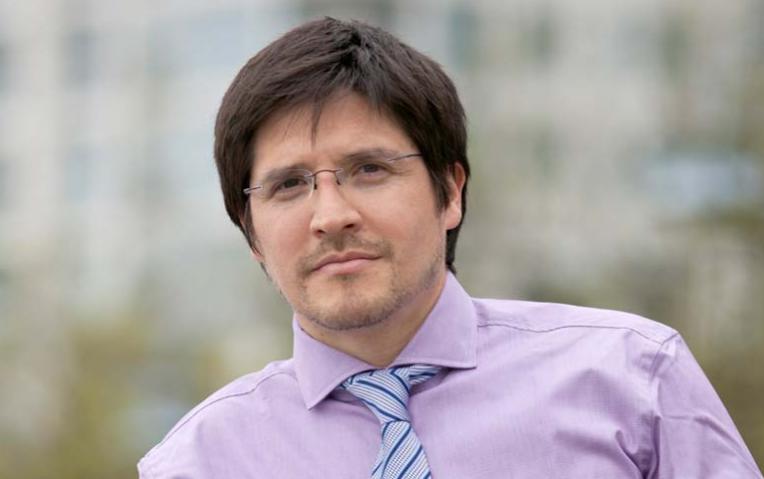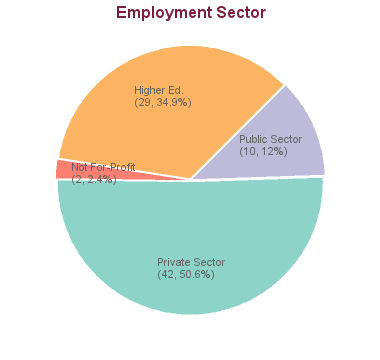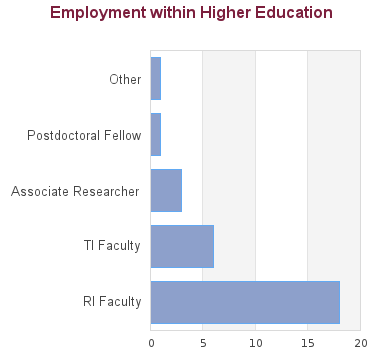
Freddy Pina
Job Title
President
Employer
PBRV Consulting Ltd.

Review details about the recently announced changes to study and work permits that apply to master’s and doctoral degree students. Read more
Civil engineering is a professional engineering discipline that deals with the design, construction, and maintenance of the natural and built environment. It is a very broad field made up of several sub-disciplines such as environmental engineering, construction engineering, geotechnical engineering, hydrotechnical engineering, materials engineering, structural engineering, and transportation engineering. Many of the sub-disciplines of civil engineering are themselves very broad and are made up of further distinguishable sub-disciplines. For example, hydrotechnical engineering includes water resources engineering, offshore engineering and coastal engineering.
The Faculty of Graduate and Postdoctoral Studies establishes the minimum admission requirements common to all applicants, usually a minimum overall average in the B+ range (76% at UBC). The graduate program that you are applying to may have additional requirements. Please review the specific requirements for applicants with credentials from institutions in:
Each program may set higher academic minimum requirements. Please review the program website carefully to understand the program requirements. Meeting the minimum requirements does not guarantee admission as it is a competitive process.
Applicants from a university outside Canada in which English is not the primary language of instruction must provide results of an English language proficiency examination as part of their application. Tests must have been taken within the last 24 months at the time of submission of your application.
Minimum requirements for the two most common English language proficiency tests to apply to this program are listed below:
Overall score requirement: 100
Reading
22
Writing
25
Speaking
21
Listening
22
Overall score requirement: 7.0
Reading
6.5
Writing
6.5
Speaking
6.5
Listening
6.5
Some programs require additional test scores such as the Graduate Record Examination (GRE) or the Graduate Management Test (GMAT). The requirements for this program are:
The GRE is optional.
All applicants have to submit transcripts from all past post-secondary study. Document submission requirements depend on whether your institution of study is within Canada or outside of Canada.
A minimum of three references are required for application to graduate programs at UBC. References should be requested from individuals who are prepared to provide a report on your academic ability and qualifications.
Many programs require a statement of interest, sometimes called a "statement of intent", "description of research interests" or something similar.
Students in research-based programs usually require a faculty member to function as their thesis supervisor. Please follow the instructions provided by each program whether applicants should contact faculty members.
Permanent Residents of Canada must provide a clear photocopy of both sides of the Permanent Resident card.
All applicants must complete an online application form and pay the application fee to be considered for admission to UBC.
Civil Engineering Materials, Environmental Engineering (Environmental Fluid Mechanics, Geo-Environmental, Pollution Control & Wastewater Management), Geotechnical Engineering, Hydrotechnical Engineering, Project & Construction Management, Structural Enginering (Earthquake Engineering), Transportation Engineering
| Fees | Canadian Citizen / Permanent Resident / Refugee / Diplomat | International |
|---|---|---|
| Application Fee | $116.25 | $168.25 |
| Tuition * | ||
| Installments per year | 3 | 3 |
| Tuition per installment | $1,875.34 | $3,294.66 |
| Tuition per year (plus annual increase, usually 2%-5%) | $5,626.02 | $9,883.98 |
| Int. Tuition Award (ITA) per year (if eligible) | $3,200.00 (-) | |
| Other Fees and Costs | ||
| Student Fees (yearly) | $1,144.10 (approx.) | |
| Costs of living | Estimate your costs of living with our interactive tool in order to start developing a financial plan for your graduate studies. | |
Applicants to UBC have access to a variety of funding options, including merit-based (i.e. based on your academic performance) and need-based (i.e. based on your financial situation) opportunities.
From September 2024 all full-time students in UBC-Vancouver PhD programs will be provided with a funding package of at least $24,000 for each of the first four years of their PhD. The funding package may consist of any combination of internal or external awards, teaching-related work, research assistantships, and graduate academic assistantships. Please note that many graduate programs provide funding packages that are substantially greater than $24,000 per year. Please check with your prospective graduate program for specific details of the funding provided to its PhD students.
All applicants are encouraged to review the awards listing to identify potential opportunities to fund their graduate education. The database lists merit-based scholarships and awards and allows for filtering by various criteria, such as domestic vs. international or degree level.
Many professors are able to provide Research Assistantships (GRA) from their research grants to support full-time graduate students studying under their supervision. The duties constitute part of the student's graduate degree requirements. A Graduate Research Assistantship is considered a form of fellowship for a period of graduate study and is therefore not covered by a collective agreement. Stipends vary widely, and are dependent on the field of study and the type of research grant from which the assistantship is being funded.
Graduate programs may have Teaching Assistantships available for registered full-time graduate students. Full teaching assistantships involve 12 hours work per week in preparation, lecturing, or laboratory instruction although many graduate programs offer partial TA appointments at less than 12 hours per week. Teaching assistantship rates are set by collective bargaining between the University and the Teaching Assistants' Union.
Academic Assistantships are employment opportunities to perform work that is relevant to the university or to an individual faculty member, but not to support the student’s graduate research and thesis. Wages are considered regular earnings and when paid monthly, include vacation pay.
Canadian and US applicants may qualify for governmental loans to finance their studies. Please review eligibility and types of loans.
All students may be able to access private sector or bank loans.
Many foreign governments provide support to their citizens in pursuing education abroad. International applicants should check the various governmental resources in their home country, such as the Department of Education, for available scholarships.
The possibility to pursue work to supplement income may depend on the demands the program has on students. It should be carefully weighed if work leads to prolonged program durations or whether work placements can be meaningfully embedded into a program.
International students enrolled as full-time students with a valid study permit can work on campus for unlimited hours and work off-campus for no more than 24 hours a week during academic sessions.
A good starting point to explore student jobs is the UBC Work Learn program or a Co-Op placement.
Students with taxable income in Canada may be able to claim federal or provincial tax credits.
Canadian residents with RRSP accounts may be able to use the Lifelong Learning Plan (LLP) which allows students to withdraw amounts from their registered retirement savings plan (RRSPs) to finance full-time training or education for themselves or their partner.
Please review Filing taxes in Canada on the student services website for more information.
Applicants have access to the cost estimator to develop a financial plan that takes into account various income sources and expenses.
96 students graduated between 2005 and 2013: 1 graduate is seeking employment; for 12 we have no data (based on research conducted between Feb-May 2016). For the remaining 83 graduates:


Many graduates from the Civil Engineering program at UBC use the knowledge and experience they gain from the broad academic program as a stepping stone to non-engineering careers, such as in business and management, or go on to other academic disciplines such as architecture or medicine.
Graduates from the Civil Engineering program at UBC who go on to practice as professional engineers are employed by small and large consulting engineering companies – some providing more specialized services and others more comprehensive services; engineering companies that provide large-scale infrastructure projects; crown corporations such as BC Hydro; and various levels of government – municipal, provincial and federal governments, and government branches and agencies
These statistics show data for the Doctor of Philosophy in Civil Engineering (PhD). Data are separated for each degree program combination. You may view data for other degree options in the respective program profile.
| 2023 | 2022 | 2021 | 2020 | 2019 | |
|---|---|---|---|---|---|
| Applications | 90 | 102 | 123 | 114 | 122 |
| Offers | 16 | 13 | 22 | 20 | 12 |
| New Registrations | 10 | 7 | 17 | 16 | 11 |
| Total Enrolment | 79 | 81 | 81 | 78 | 71 |
Students in research-based programs usually require a faculty member to function as their thesis supervisor. Please follow the instructions provided by each program whether applicants should contact faculty members.
These videos contain some general advice from faculty across UBC on finding and reaching out to a supervisor. They are not program specific.
| Year | Citation |
|---|---|
| 2010 | Dr. Chan examined the relationship between hydrodynamic conditions and fouling control in gas-sparged submerged hollow fiber membrane modules. Effective fouling control depended on the type of shear profile imposed on the membrane surface. These findings have implications on the optimal design of membrane systems. |
| 2010 | Dr. Karim Ismail worked on road safety analysis, in hope of saving some of the approximately 2500 lives lost yearly on Canadian roads. Dr. Ismail developed a technique for road safety evaluation by automating traffic conflict techniques. Dr. Ismail's work had a special focus on vulnerable road users. |
| 2010 | Dr. Zobeiry developed a new methodology to identify damage properties of composite materials using a combined experimental and numerical approach. The proposed methodology is a promising tool for characterizing the behaviour of composite materials in a relatively easy and direct manner. |
| 2010 | Dr. Elesawey developed an approach for travel time estimation on urban road networks using limited data collected from part of the network. The aim was to estimate real-time travel times on links that are not covered with sensors using their relationships with nearby links that are covered with sensors. |
| 2010 | Dr. Juarez Garcia's research makes two major contributions to an interdependency simulator (I2Sim) to handle different types of hazards and events that affect dense concentrations of people. With the methodology and I2Sim it will be possible to build up Regional models, Disaster Scenarios, Objective Functions and Emergency Planning. |
| 2010 | Dr. Fattah developed control strategies for operating a reactor that can be used to recover phosphorus from wastewater, in the form of struvite, that provides a sustainable source of slow-release fertilizer. The chemical and process control models developed will enable easier, increased yield and higher operational efficiency of the process. |
| 2010 | Dr. Srikongsri developed a hydromechanical framework to explain the onset of retention incompatibility between soil and a geotextile filter in cyclic flow conditions. The framework is used to examine the inherent margin of safety in recommended design criteria, and thereby enhance confidence in the use of geotextile filters in engineering practice. |
| 2010 | Dr. Bahadoorsingh compared the nitrification rates in different wastewater treatment processes. Her research related specific nitrification rates of membrane and conventional treatment processes to various parameters and the bacteria community structure and abundance. The research is significant as it clarifies that the nitrification performance between the two wastewater treatment processes is similar. |
| 2010 | Dr. Gedig developed methods for the conceptual engineering design of industrial and architectural structures. The methods use image processing, pattern recognition and mathematical optimization techniques to help create, explore, and reason with structural forms. The research facilitates the rapid and cost-effective development of structural design concepts. |
| 2010 | Dr. Loewen developed an analytical methodology that allows engineers to estimate the influence of design decisions on the probability of a successful design outcome. The method was subsequently applied to industrial case studies involving complex structures, and was used to estimate the probability of meeting performance and cost targets. |
Civil Engineering covers the following areas of specialization: civil engineering materials, environmental fluid mechanics, environmental systems engineering, geo-environmental engineering, geotechnical engineering, hydrotechnical engineering, project & construction management, structural & earthquake engineering, transportation engineering
Departments/Programs may update graduate degree program details through the Faculty & Staff portal. To update contact details for application inquiries, please use this form.

Great academic programs, great location: the distinct seasons and mild climate are among the reasons why graduate students choose to study here -- from the autumn leaves to cherry blossoms, witness the many colours Vancouver has to offer.